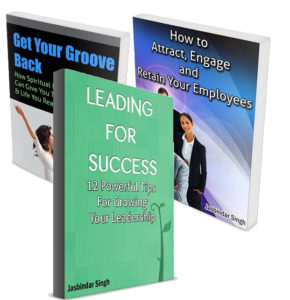Can you recall the last time you got “triggered?”
Perhaps it was a throwaway line by a colleague, the sudden changed reaction of someone you were in a conversation with or the family member who appears to be forever taking a swipe?
From being your calm even self, within seconds your physiology had been activated almost as if there was a sabre-tooth tiger in the room!
The neutrality of the conversation gone, thinking powers subdued and red lights flashing, a full throttle fight or flight had now taken over command.
And this you did with great flair, style and aplomb!
The only thing was that there was NO tiger present and you realized afterwards that you had over-reacted.
Needless to say, that particular conversation took a dive and the relationship now needs tending to.
Well – the good news is that you are not alone here.
We have all done this, haven’t we and realized afterwards that our interpretation of what happened was quite off-mark.
Simply put – we got triggered.
Triggers are Our Ammunition
Here’s the thing though – whenever we get triggered and hijacked by our strong, unexpected reaction – it is a giveaway sign that there is a hidden barrier waiting for us to breakthrough with!
Our triggers are our ammunition for where we need to move beyond any earlier conditioning or beliefs about how we view certain things.
Unless we become more conscious of our triggers, we are more likely to do this:
- Be on Automatic Pilot: We immediately become reactive when our ‘triggers’ get activated. Carl Jung – the gifted grandfather of psychology referred to these as our ‘complexes.’ Typically, our reactions will be way beyond proportion to any intended message.
- Emotional Eruption: We then get upset, angry, accusatory of the other person of how they have done “x,y,z”. Even if the other party’s intent was not one to provoke you, being at the receiving end of your eruption, they may also get provoked.
- Combat Zone: Now you are both in the boxing ring and the conversation has veered off where neither of you started. You are both in a combative mode with blows flying willy-nilly.
But it no longer needs to be this way!
Here are seven things you can do
The following actions will not only help you recognize, and understand your trigger but it will help you to keep your cool when you do get triggered.
It will give you a breather to respond in a better way and even save your relationship!
1) Know what and who your triggers are
We all have some things or certain people who trigger us more often than others. Be mindful of these before you enter a situation with them.
For example, it could that family member who has a certain way of saying things, which just gets under your skin. Or it could be when a staff member or colleague continues to do something that you have already had a discussion about.
Knowing this enables you to be forearmed and not being surprised each time, every time.
2) Become aware when you get triggered
This step is not too hard to miss, as you will notice changes in your body, mind and mood. For example, you will notice the heart starts beating faster, you are sweating, your feel tension in the mind or body and suddenly your mood has changed from neutral to anger, flatness, or hurt.
Being self aware in this way then enables you to self manage better both of which are important skills of emotional intelligence.
3) Name your thoughts, feelings and reaction without making the other person the cause
Too often we go straight for the jugular and hold the other person responsible along the lines of, “Look what you have done now/or made me feel.” Getting angry, shouting, screaming, calling names, snarling, make biting comments or other passive aggressive behaviours
Notice and own your feelings as your reaction. Take ownership – it gives you more power and options to come out on top.
Self-control is another dimension of being emotionally intelligent.
4) Breathe
A good way of keeping your cool is to become aware of your breath. Focusing on your breath for the next few seconds will help your calm yourself and regain your composure.
It is a good way of buying time so you will be able to better respond, not react. As Steven Covey has said, it is creating that gap between stimulus and response, which enables us to not be reactive.
5) Look at the context/bigger picture you are in
Remind yourself of the bigger picture of whatever situation you are in.
For example, in a project team, the inappropriate response of another colleague could perhaps be forgiven considering they are normally pretty on to it but are super stretched this time or a family member who has perhaps lost a job recently.
This allows us to have a bit more compassion and be kinder than our own ‘triggered’ first response taking precedence.
6) Take time out
In conflict situations, one thing we don’t do enough of is to remove ourselves and take time out.
Likewise, in situations we get triggered, it is not always easy to control our feelings and the best thing you can do is to say that you need some time out and take leave.
You can re-engage once you have gathered yourself.
Remember, our triggers may be a conditioned response to an earlier beliefs or situation which may no longer be appropriate or relevant. Be prepared to challenge yourself on this as growth is just on the other side!
7) Reflect afterwards noting what you might do differently
Whatever you have done, review afterwards and identify what went well, what didn’t go so well and what you might do differently next time.
And remember to congratulate yourself for taking a step back, managing an old trigger and coming out on top.
Bringing it all together
As neuroscience has found, our neuronal pathways respondin known ways. The brain loves to take short cuts with the least amount of expenditure of energy.
Changing behavior patterns require a whole lot of intention, attention and repetition. But this can be done.
New neuronal pathways can be created. As has been said, “neurons that wire together, fire together”
So over to you now!
What has been your key takeout from this article, which you could put into practice next time you are triggered?
Note: This article was first published in Change your thoughts, Change your Life
As a leadership and career coach, I love working with individuals, teams and organisations to help them be resilient as they progress with their goals and vision. You can contact me at +64 27 280 3335 or jasbindar@jasbindarsingh.com
Image courtesy of patrisyu at FreeDigitalPhotos.net
















 Follow Jasbindar on Twitter
Follow Jasbindar on Twitter



